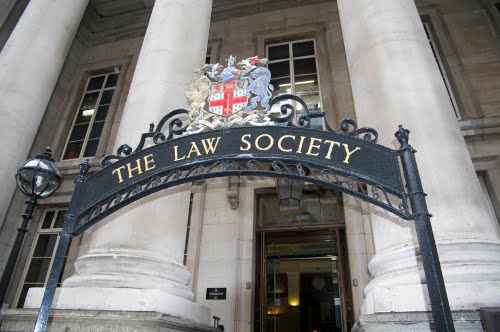The SDT release sanctions guidance

The document follows similar guidance that has been in regular use by other regulators such as the GMC, the NMC and the newly formed HCPC [Health and Care Professions Council]. Other regulators such as the AADB are also following suit by consulting on similar guidance documents.
Following criticism in the case of [ ] for not having sanctions guidance, the SDT have released a 12 page Guidance Note on Sanctions, dated August 2012.
The document follows similar guidance that has been in regular use by other regulators such as the GMC, the NMC and the newly formed HCPC [Health and Care Professions Council]. Other regulators such as the AADB are also following suit by consulting on similar guidance documents.
The introduction makes it clear that the note is a distillation of current SDT sanctioning principles brought together in one document. It is not intended to fetter the discretion of the Tribunal when deciding sanction.
The result is that there are no surprises within the guidance, which studiously avoids the difficult issue of setting the range of financial and other penalties for the various transgressions. Large chunks of Bolton v Law Society [1994] 1 WLR 512 are rehashed to remind solicitors of the grave responsibility they accept on admission to the roll.√جª¬ø√جª¬øand it’s purpose is to assist the parties, the public and the profession in understanding the Tribunal’s decision- making process.
Jurisdiction and Powers.
The Tribunal has the power to impose a reprimand, impose a financial penalty payable to HM Treasury, suspend from practice indefinitely or for a specified period [S 47 of the Solicitors Act 1974] or striking off the Roll of Solicitors.
Other orders that can be made include, no order, restrictions upon the way in which a solicitor can practice and termination of a period of suspension, restoration to the Roll following strike off and costs.
Terminology
For the avoidance of doubt, phrases that are generally bandied about have been defined as follows:
Culpability: The level of culpability will be influenced by such factors as ( but not limited to the respondents motivation for the misconduct, whether the misconduct arose from actions which were planned or spontaneous, the extent to which the respondent acted in breach of a position of trust, the extent to which R had direct control or responsibility for the circumstances giving rise to the misconduct and his level of experience and harm caused.
Harm: the Tribunal has to assess the impact of the misconduct upon the public and the reputation of the profession, the extent of the harm that was intended or might reasonably foreseeably have been caused by the respondents misconduct
Aggravating Features; Includes dishonestly, misconduct which was deliberate and calculated or repeated, misconduct over a period of time, taking advantage of a vulnerable person, concealment of wrongdoing, previous matters or most importantly ‘misconduct where the respondent knew or ought reasonably to have known that the conduct complained of was in material breach of obligations to protect the public and the reputation of the profession’. [my emphasis].√جª¬ø
Mitigating Features. Includes misconduct arising from deception by a third party including the client, the extent to which any loss has been made good, single episode or brief duration in a previously unblemished career or insight, provided it is genuine ( which raises an interesting concept of disingenuous insight).
As with other regulators, personal mitigation is to be applied after a finding as to the seriousness of the misconduct.
Striking Off the Roll of Solicitors: for cases of serious misconduct where the protection of the public and/or protection of the reputation of the profession requires it.
Where there is no dishonestly, the Tribunal will have regard to the overall facts of the misconduct and in particular the effect on public confidence in the profession. The decision in Weston v Law Society [1998] Times 15th July is relied upon to make it clear that maintaining the Solicitors Accounts Rules is of the utmost seriousness.
To download a full copy of the guidance please click here.
Particular Sanctions
As with other bodies this is in effect a three stage process where the tribunal first decides if there is misconduct, then the seriousness of the misconduct to assess whether to make an order, then which sanction to impose. It does seem that the tribunal ( unlike other tribunals) can go straight to the sanction that it feels is appropriate, rather than the laborious process of working its way up the list of seriousness in each case.
The sanctions are:
No Order: Where it is unfair or disproportionate [but can still order costs]
Reprimand: For cases with low culpability and risk of repetition
Fines; Which can be imposed without limit
Suspension from the Roll: either for a fixed or indefinite term ( a term of suspension can itself be temporarily suspended)
Dishonesty
The guidance confirms a number of SDT decisions that show that dishonesty will almost invariably lead to striking off, save in ‘exceptional circumstances’ [eg the case of [ ] where a failure to pay a small train ticket was overlooked].
Other issues
The guidance also deals with applications for restoration to the Roll and Costs, which in general terms should not be an additional punishment for the respondent, but should compensate the applicant for costs incurred. The Tribunal may award costs against a respondent even if it makes no findings of misconduct and against the Applicant in very limited circumstances.
Originally posted 2012-09-08 00:00:00.


